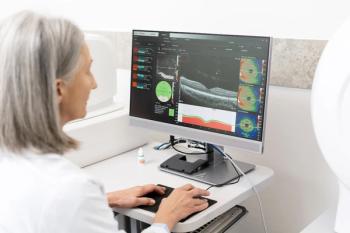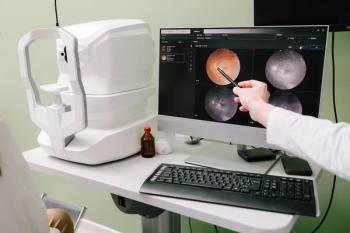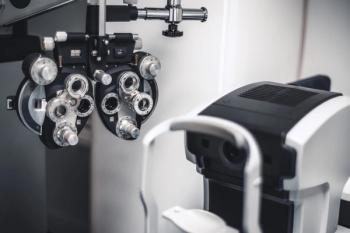
5 tips to effective, efficient staff meetings
Not starting meetings on time and waiting for late staff sends the message that on-time people’s time is not important, says Anthony Record, LDO, FNAO, ABO, of Tampa, FL at Vison Expo East.
New York-Not starting meetings on time and waiting for late staff sends the message that on-time people’s time is not important, says Anthony Record, LDO, FNAO, ABO, of Tampa, FL at Vison Expo East.
Current habits, meeting structure, nervousness, engagement, and meeting alternatives should be evaluated to determine the effectiveness of your staff meetings, says Record. Once current meeting habits are evaluated, then you can make adjustments to make your meetings more effective.
Related:
Assessing current habits
Record says to first assess your current meeting habits by asking yourself the following:
• I look forward to conducting team meetings
• Staff members seem to look forward to team meetings
• Employees are given a meeting agenda a few days in advance
• Most of the time the agenda is adhered to without deviation
• Our staff meetings always start on time
• Our staff meetings usually end on time-sometimes early
• Employees would describe our meetings as positive and productive
• No employees ever interrupt or disrupt our team meetings
• The practice manager, owners, and principal doctors usually attend our staff meetings
• If I had to, I could describe at least three great improvements or achievements that came out of a meeting last year
Related:
If you are leaving questions unanswered during meetings, it may be time to assess your current meeting habits. Based on how you assess your current meeting habits, there are three keys to an effective staff meeting, says Record.
“The criteria for an effective staff meeting is planning, execution, and follow-up,” says Record. “Meetings that aren’t productive cost you time and energy.”
Meeting structure and preparation
Record says that before a staff meeting you should consider:
• Setting an agenda
• Setting time limits
• Advise attendees on what to bring
• Set meeting time and place that is conducive
• Avoid late-day meetings
• Always summarize meetings
Related:
“Holding a meeting for the whole office when it’s a topic that may pertain to a select few causes the staff to think their time is being wasted,” says Record. “It also sends the message that boss may not have the backbone to address only select few staff members who may be in violation.”
Record says to choose one of three templates for your staff meetings:
• Traditional: Introduction, tell the staff what information you are going to tell them, tell the staff that information, tell the staff what information you told them, ending
• Question and answer (Q&A): Introduction, questions, answers, ending
• Alcoholic Anonymous (AA): Introduction, AA, ending
He also says that you must anticipate problems before the meeting, such as someone wanting to go against the meeting’s agenda.
“Before the meeting you want to have the agenda set and a pre-call to establish expectations,” says Record. “Give the staff what they want such as, credibility, relevance, and substance.”
Related:
Keeping meeting attendees engaged
Record says, to keep meeting attendees focused you should:
• Start meetings with a bang, not a whimper
• Tell a story, patient experience, or an employee kudos that is related to your practice
• Form personal connections
• Follow a specific outline
• Manage Q&A like a pro
- Anticipate
- Prepare
- Rehearse
- Listen
- Repeat
- Involve
“If questions are too complex to answer at the time, use the Keep it Simple, Stupid (KISS) method,” says Record. “It’s also OK to defer the question to later or admit it is too hard to answer. You can always ask the audience-but never bluff.”
Record says, if meeting attendees are being disrespectful or not paying attention during the meeting, use the following tactics to get them to comply:
• Ignore them
• Use physical proximity to quell them
• Make eye contact with them
• Take a break and pull them aside
• Ask them to leave
“Part of having an effective staff meeting is learning to be a good meeting facilitator,” says Record. “You must be prepared for everything you may encounter-not just the meeting.”
Humor is OK to use, but follow these do’s and don’ts when you do, says Record.
“Use real-life examples,” he says. “Make fun of yourself and use visual humor, but never laugh at your own jokes or build a meeting around a joke.”
Related:
Battling nervousness
It is important to manage any nervousness you may have heading into the meeting.
“Use alpha breathing techniques, finger exercises, and try memorizing the first three to five minute of your presentation beforehand to help combat nervousness,” says Record.
If presenting at a meeting is not your thing,
Related:
Alternative options to meetings
If having a meeting isn’t an option, use alternatives to communicate with your staff effectively, says Record. Meeting alternatives include:
• Instant messaging (IM)
• Email communication
• Brainstorming sessions
• Teleconferencing
• One-on-one meetings
• Newsletters
• Non-traditional meetings
• Holding meetings during off hours
The goal is to take your staff meetings from ordinary to extraordinary, and you can do so by employing these simple meeting tips, says Record.
Newsletter
Want more insights like this? Subscribe to Optometry Times and get clinical pearls and practice tips delivered straight to your inbox.




























